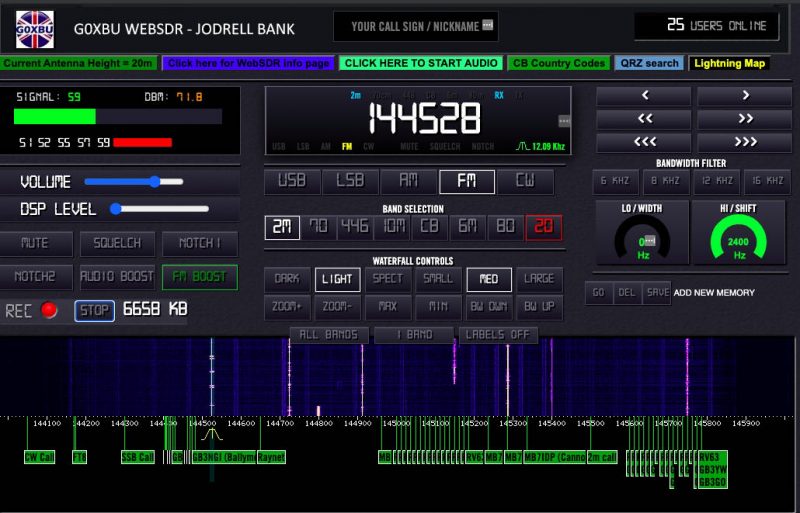While some SWLs and radio listeners dislike Web-based SDRs because they don’t feel like “real radio” there’s no denying that they do offer up listening opportunities you might not otherwise be able to enjoy from home.
Case in Point
Friend and SWLing Post contributor, Pete Madtone, has been enjoying dropping in on a local Slow Morse Morning Club via the G0XBU WebSDR. He’s shared a bit of recorded audio with me in the past, but this morning he sent me a link to the SDR with the frequency of the class in progress.
We both listened live with Pete and the repeater in the UK, and me in the States.
The class is wonderful and what I consider an ideal use of local repeaters. Linda serves up a sentence of slow code, then reads back what she sent. The others on the repeater then chime in with their copy–what they copied and what they missed. There really is no better way to build up your CW chops in the beginning than to do this–it’s interactive, supportive, and the audio very clear via FM on the repeater. It’s proper distance instruction using my favorite medium: radio!
Plus, well, the whole thing has some serious charm. I started an audio recording of the class this morning. Here’s it is for your enjoyment:
Thanks for the tip this morning, Pete!


Hi,just seen this article on Google, we have a lovely time on the cw sessions, slow in the am, and QSO in the pm, as they say you never know who is listening, enjoy.
G6QA Lynda
Please would you post the full details of the class. Days, times and repeater frequency would be great so folk using webSDR can listen and others lucky enough to be in repeater hitting distance in the UK, could possibly take part.
Thanks for your great work on this site,
Ace
Sounds like a good idea to spread around. What time does this net operate so we can share the information? Did I miss it in the article?
I like SDR when can share via web the receiver 😀
I like make, repair, restore or experiment with my own CW tx and discover i can use wikisdrs or others sdr share via web to monitor my signal and learn more about propagation and QRP issues (less power more distant).